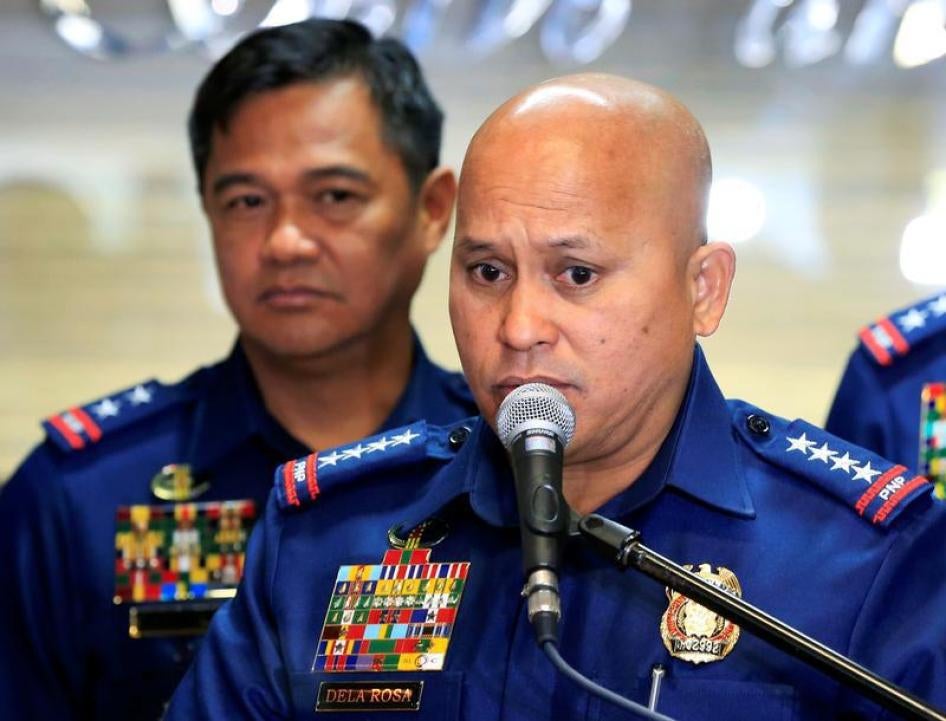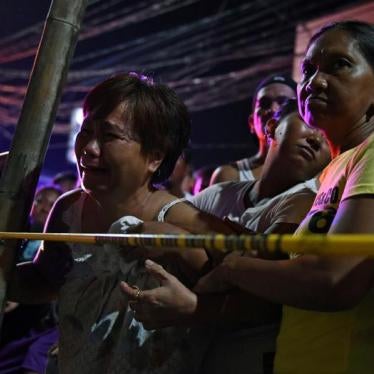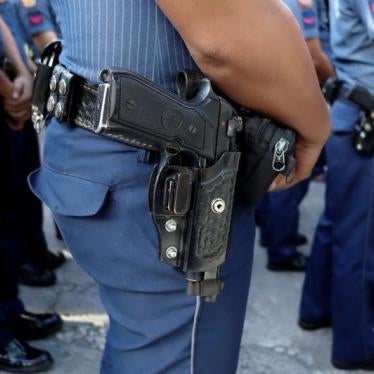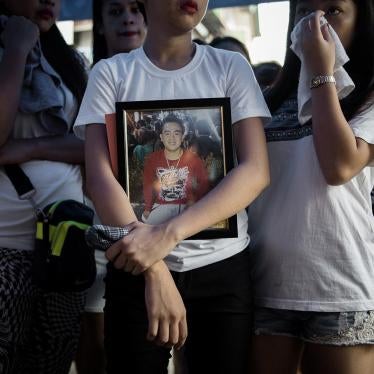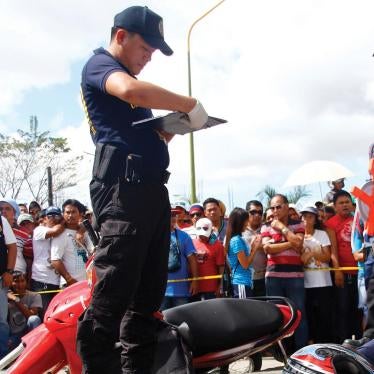The police officers in the Philippines facing homicide charges in the 2016 killing of Albuera Mayor Rolando Espinosa Sr. are heading back to work.
The Philippine National Police (PNP) director-general, Ronald dela Rosa, announced on Wednesday that the 18 police officers, who were released on bail last month, “can be utilized again by the PNP for whatever assignment.”
The reinstatement comes even though twin inquiries by the National Bureau of Investigation and the Philippine Senate concluded the officers had committed “premeditated murder” when they shot Espinosa to death in a Manila jail cell on November 5, 2016. Espinosa had surrendered to the police following public accusations by President Rodrigo Duterte that he was a drug trafficker. Both probes rejected the officers’ assertion that Espinosa died in a firefight in his cell after brandishing a concealed pistol.
The officers’ reinstatement isn’t surprising. In April 2017, Duterte vowed that if a court convicted the officers for Espinosa’s death, he would respond by pardoning, reinstating, and promoting them. “They can call me and say they have been convicted, and I’ll tell the judge to pardon them all,” Duterte said at the time. Duterte has alleged that Espinosa was a notorious drug trafficker who had “destroyed half of the Visayas” region, without providing any corroborating evidence.
The kid-gloves handling of the officers is emblematic of the wider impunity enjoyed by those responsible for the killing of more than 7,000 people in Duterte’s murderous “war on drugs.” Duterte has glorified those thousands of deaths as proof of the “success” of an anti-drug campaign that has disproportionately targeted urban slum dwellers. Human Rights Watch field research found that government claims that the deaths of suspected drug users and dealers were lawful are blatant falsehoods. Interviews with witnesses and victims’ relatives and analysis of police records show a pattern of unlawful police conduct designed to paint a veneer of legality over extrajudicial executions that may amount to crimes against humanity.
While the Philippine National Police have publicly sought to distinguish between suspects killed while resisting arrest and killings by “unknown gunmen” or “vigilantes,” Human Rights Watch found no such distinction. In several cases, the police dismissed allegations of involvement when only hours before the suspects had been in police custody. Such cases call into question government assertions that most killings were carried out by vigilantes or rival drug gangs. The drug-war deaths urgently demand accountability through a United Nations-led international investigation. Until that occurs, police and their agents implicated in those killings will continue to get away with murder.
|
Dispatches
Philippines’ Abusive Drug War Breeds Injustice
Police Linked to Mayor’s Murder Returning to Work
Your tax deductible gift can help stop human rights violations and save lives around the world.
Region / Country
Most Viewed
-
November 25, 2019
A Dirty Investment

-
June 3, 2025
“They’re Ruining People’s Lives”

-
December 21, 2023
Meta’s Broken Promises

-
January 25, 2024
“We’re Dying Here”

-
February 19, 2018
“All We Want is Equality”

